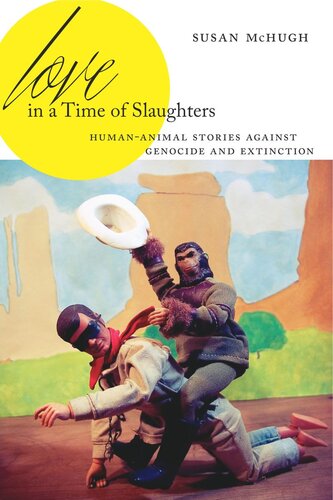

Most ebook files are in PDF format, so you can easily read them using various software such as Foxit Reader or directly on the Google Chrome browser.
Some ebook files are released by publishers in other formats such as .awz, .mobi, .epub, .fb2, etc. You may need to install specific software to read these formats on mobile/PC, such as Calibre.
Please read the tutorial at this link: https://ebookbell.com/faq
We offer FREE conversion to the popular formats you request; however, this may take some time. Therefore, right after payment, please email us, and we will try to provide the service as quickly as possible.
For some exceptional file formats or broken links (if any), please refrain from opening any disputes. Instead, email us first, and we will try to assist within a maximum of 6 hours.
EbookBell Team

4.4
102 reviewsLove in a Time of Slaughters examines a diverse array of contemporary creative narratives in which genocide and extinction blur species lines in order to show how such stories can promote the preservation of biological and cultural diversity in a time of man-made threats to species survival.
From indigenous novels and Japanese anime to art installations and truth commission reports, Susan McHugh analyzes source material from a variety of regions and cultures to highlight cases where traditional knowledge works in tandem with modern ways of thinking about human-animal relations. In contrast to success stories of such relationships, the narratives McHugh highlights show the vulnerabilities of affective bonds as well as the kinds of loss shared when interspecific relationships are annihilated. In this thoughtful critique, McHugh explores the potential of these narratives to become a more powerful, urgent strategy of resistance to the forces that work to dehumanize people, eradicate animals, and threaten biodiversity.
As we unevenly contribute to the sixth great extinction, this timely, compelling study sheds light on what constitutes an effective response from a humanities-focused, interdisciplinary perspective. McHugh’s work will appeal to scholars working at the crossroads of human-animal studies, literature, and visual culture, as well as artists and activists who are interested in the intersections of animal politics with genocide and indigeneity.